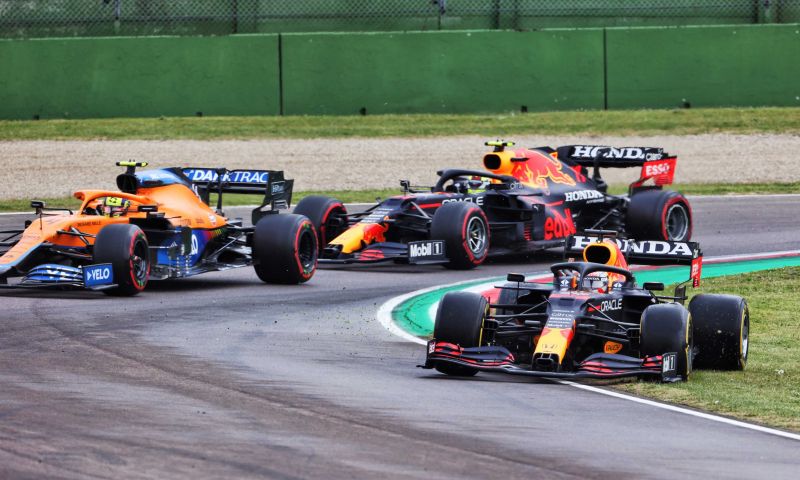F1 News

Verstappen had no luck with his spin: 'Not the first time he's done this'
- GPblog.com
Max Verstappen crossed the finish line with a big gap to the number two, but things could have been different. At the restart, Verstappen had a hair-raising moment, which Jolyon Palmer believes was not all down to luck.
After the red flag due to the crash of Valtteri Bottas and George Russell, the Formula 1 race in Imola resumes. Verstappen lead the race and was warming up his tyres for the restart. However, this went horribly wrong right before the start with a spin. The Dutchman was lucky though as he caught the car in time.
The spin in Imola
"This was a huge moment for Max, who made it very difficult for himself. He almost throws it all away there, and that would have been a huge blooper though. He luckily keeps the car on the track with one wheel luckily just barely,'' says Jolyon Palmer in his analysis for F1TV. Still, the Briton doesn't want to speak only of luck.
''In this moment he seems to have lost control and there is nothing more he can do. He steers completely against it and ends up on the grass where there is even less grip. The wheels are counter-steering all the time, but that doesn't seem to do anything. Verstappen pressed his brake fully, but then suddenly seemed to let go, allowing the car to regain grip at the right moment and steer back onto the track.''
No luck for Verstappen
Where most pointed to luck, Palmer doesn't quite want to. ''You'd say a lucky escape, but it's not the first time I've seen Verstappen catch such a monstrous slide. He uses his brakes and releasing them as a last resort. He did that in Brazil in 2016, but also in Turkey last year. He releases his brakes at just the right moment to get back in the right direction.''
So Verstappen wasn't completely lucky, although the former Renault driver doesn't want to go so far as to say Verstappen had everything under control either. ''He's obviously lucky here too because he was off the track. On the other hand, it's obviously also something instinctive that allows him to get back on track'', Palmer concludes.

